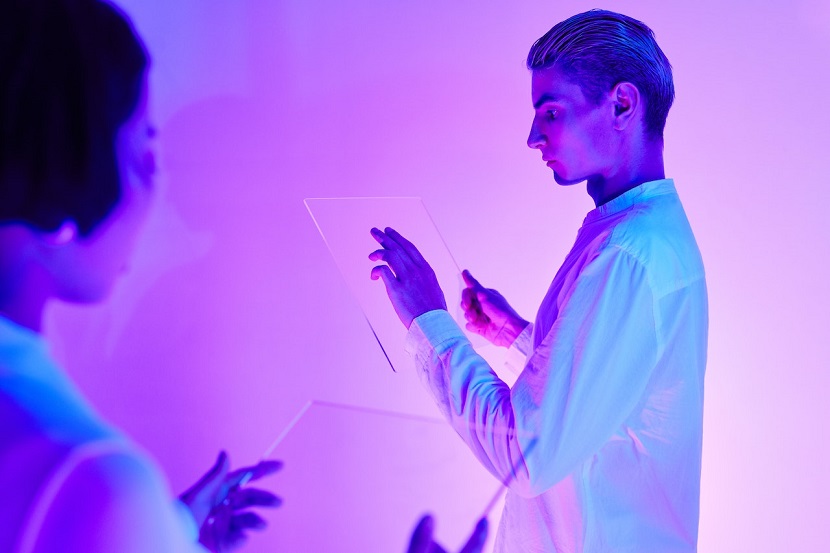The AI startups, according to venture capitalists, are worth keeping a watch on. They range from altering audio in a word processing document to recording films without any special equipment. The artificial intelligence chatbot ChatGPT reached a million users a week after its November launch, a feat that took Facebook 10 months to accomplish. Recently, this particular platform used some AI-generated artwork. Regardless of the debate over how technology will affect our jobs, it is certain that the integration of artificial intelligence into the creative sectors is at a turning point. Venture capitalists are also starting to take out their wallets.
However, what kind of businesses will define this change? Here are 12 innovative AI startups that investors believe have the potential to have an influence in the future, ranging from AI-powered picture editors to writing a hit song without any musical talent.
Yepic AI
Yepic AI, a UK-based company, streamlines the creation of expert films without the requirement for specialized training. The user drafts a screenplay and selects an avatar to read it aloud. Then, the software uses those cues to create a talking heads video. The software also has the ability to subtitle live videos in eight different languages, and it intends to introduce a studio that businesses can incorporate into their own shows.

Creaition
Creaition creates original inspiration images that users may store, tweak, and mix with other ideas or morph with in order to assist product designers in discovering and developing new goods. By getting to know each user, it may adjust the images it provides to suit their needs. For instance, it might show shoe designer mock-ups of trainers and patterns that can make a product that incorporates features from both prompts.
Stability AI
Emad Mostaque created Stability AI, which is creating open-source solutions to give users and developers access to generative AI technologies after raising $100 million in startup funding. Working on a variety of platform-hosted product offerings, from picture generation to making music production more accessible, is a team of AI professionals from around the world.

Skippr
This London-based AI startup wants to automate some aspects of product design in order to boost productivity, reduce expenses, and relieve designers from tedious tasks so they can concentrate on the parts of the process they find most enjoyable. Although it hasn’t launched yet, the program will enable collaborative “human-machine hybrid” product design, according to the manifesto.
VoiceMod
VoiceMod was initially designed as a voice modulator for video games, but it has now evolved into an AI voice generator that can be used in social media, live broadcasts, and games. Despite the program being tailored to English, there are additional languages, and the voice filters produce “sonic identities” that are created by professional actors.

Descript
With Descript, you can edit audio and video just like you would a document. The program uses speech-to-text to create an editable transcript and automatically eliminates filler words. Additionally, if it turns out that a few words were spoken incorrectly in your audio, you can change them in your transcript, and the program will produce the appropriate audio in your voice to correct any errors.
PhotoRoom
On your phone, PhotoRoom is an AI-first photo studio. From the convenience of their phone, users may take a picture of an object, remove its background, edit the image to remove distracting elements, create a unique background using text-to-image prompts, modify the shadows, and prepare the picture for web publication.

Cradle.bio
Cradle provides AI-first design tools to protein engineers. Using a set of optimized parameters they have in mind, users can anticipate the three-dimensional (3D) structure of a protein and build a variety of unique sequences from a starting point. In order to bring AI’s creative potential into scientific contexts, medicinal and industrial proteins are now being designed using the same techniques as those used to create art and video.
Synthesia
London-based Synthesia enables consumers to produce studio-quality video material using straightforward text prompts. Professional video production is frequently only thought of if the ROI is very high and there is a spare cash, but Synthesia’s simpler option gives businesses a more affordable approach to create AI-powered marketing content without pricey resources.

Dust
Building, training, and deploying models have hitherto been the main focus of creative AI. However, there will be an increasing use of the off-the-shelf models in future. The emphasis will now be on user experience (UX) and building AI-native apps that enable users without AI competence to use these models. One of the community-built apps now available is a program that can compose unique wedding thank-you cards based on brief instructions. Dust is an open-source platform that assists developers in building AI-native apps from the ground up.
Glyphic
One of the most intriguing business models for AI startups today is “Copilot for X,” in which the technology learns from the context of a file and uses those clues to make suggestions or come up with answers. For B2B salespeople, Glyphic is developing an AI-powered copilot in an effort to cut down on the amount of time spent on mundane chores. The labor-intensive process of writing scripts for intricate customer talks and inquiries is one operation it seeks to automate in order to aid sales teams in navigating these conversations more skillfully.

Tytn
As a result of the fact that natural language processing (NLP) models are currently some of the most sophisticated, language production presents the majority of low-hanging fruit chances in creative artificial intelligence. AI startups must balance accuracy, cost, and speed in their models when developing an AI application. For the majority of businesses, accuracy is still their top priority, but once they have reached the highest degree of accuracy, cost and speed will take precedence. With the release of its toolkit in 2023, which will reduce the time it takes to deploy an NLP application from months to just days, Tytn is planning ahead to that next step.



